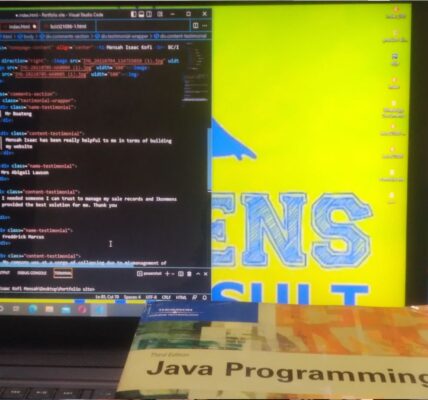Buying a property sounds simple, but there are many money mistakes people make without knowing. You might find a place you like, the price looks fine, and everything seems to move fast. But if you’re not careful, you could end up with hidden costs, loan trouble, or a property that doesn’t earn what you hoped.
This guide covers common financial traps people face when buying property.
Ignoring Hidden Costs
Most buyers focus only on the sale price — but that’s just part of the picture. Every property comes with extra costs that can add up fast. Things like registration fees, stamp duty, agent commissions, legal charges, property taxes, insurance, and ongoing maintenance are often overlooked. If you’re buying a flat, monthly service charges or sinking funds can quietly eat into your rental income or savings.
Not budgeting for these extras can throw off your entire plan. Maybe you thought the property would give you cash flow, but once the hidden costs come in, you’re barely breaking even — or worse, losing money each month.
The biggest trap I see with first-time investors is underestimating what a property truly costs. They think they’re getting a deal, but the math doesn’t work once they factor in taxes, repairs, or holding costs. That’s where deals go bad.
“It’s not unlike owning paddle boards,” shares a product advisor from Atoll Inflatable Paddle Boards. “The board might be affordable, but if you ignore maintenance, storage, or gear costs, your experience quickly turns stressful instead of enjoyable. Property ownership works the same way — you need to plan for everything beyond the sticker price.”
The fix? Before you sign anything, write down all the possible costs. Talk to your agent, lawyer, or someone with experience. Always have a buffer, and don’t stretch your budget so tight that one surprise ruins your plan.
Overleveraging with Loans
Taking a loan can help you buy property sooner, but it also brings risk if not handled properly. Some investors take the maximum loan they qualify for, assuming future rent or property growth will cover it. But if rent drops, interest rates rise, or the property stays empty, they’re stuck paying from their own pocket.
Overleveraging means you’re using more borrowed money than you can safely handle. If the property doesn’t perform, you could fall behind on EMIs, damage your credit score, or be forced to sell quickly at a loss.
A safer approach is to borrow within limits and leave room for error. Can you still pay the EMI if the property stays vacant for a few months? What if interest rates rise by 2%? Always test your plan with a worst-case scenario.
Remember, banks will tell you what you can borrow, but they don’t know your full situation. Just because you qualify for a large loan doesn’t mean it’s smart to take it.
Play it safe. Keep your debt manageable and avoid the stress that comes with being stretched too thin. Property is a long game — and being careful with financing is what keeps you in it.
Skipping the Property Inspection
“On paper, a property may look perfect. The location is good, the price fits your budget, and the pictures are great. But skipping a proper inspection is one of the riskiest shortcuts you can take.

Many issues hide beneath the surface — like poor wiring, plumbing leaks, water damage, termite problems, or weak foundations. These aren’t always visible during a quick site visit or in glossy brochures. But fixing them later can cost thousands and ruin your profit margins.” adds John Gill, Operations Director at Easy Concrete Supply
A good inspection helps you catch these problems before buying. It gives you the chance to negotiate, ask the seller to fix them, or even walk away if the issues are too serious.
Dan Close, Founder and CEO of BuyingHomes.com, shares, “I’ve seen deals fall apart after the inspection, and thank goodness they did. Some properties look fine but are ticking time bombs. You’re not just buying walls — you’re buying what’s behind them. Always inspect, always ask questions.”
Whether it’s a small home or a large building, bring in someone who knows what to look for. Don’t rely only on your agent or the seller’s word. Spend the time, spend a little money if needed — but don’t skip this step. It’s far cheaper to inspect now than to regret later.
Misjudging Rental Potential
As per Robert Bolder from Trackity “Many investors assume they’ll easily rent out their property and cover the loan—but that’s not always how it plays out. Rental income depends on local demand, tenant type, area reputation, and what similar properties are offering. If you misjudge the rent potential, you could end up with a property that doesn’t generate enough income — or sits vacant for months.”
For example, buying a luxury flat in an area with mostly students or short-term renters might backfire. They might not be able to afford your rent, or prefer cheaper options nearby. Or you may invest in a newly developed area that lacks basic amenities, which makes it harder to attract tenants.
Before buying, check actual rental listings in the area. Talk to local agents. Find out how long properties stay vacant, and what renters are really looking for. Don’t rely on promises from builders or sellers — look at real, verified numbers.
Rent is one of your biggest income sources as an investor. If it doesn’t line up with your loan payments or expectations, the whole plan can collapse. Do your homework and base your decision on facts, not guesses.
Final Thoughts
Buying property isn’t just about picking the right place — it’s about avoiding the wrong mistakes. Hidden costs, risky loans, and bad timing can quietly turn a good deal into a bad one. That’s why it’s so important to stay calm, do your checks, and not rush the process.
The best investors don’t just chase profits — they protect themselves from problems. If you take the time to avoid these traps, you’ll save money, stress, and maybe even your entire investment. Slow down, stay sharp, and always buy with your eyes open. That’s how smart property deals are done.





